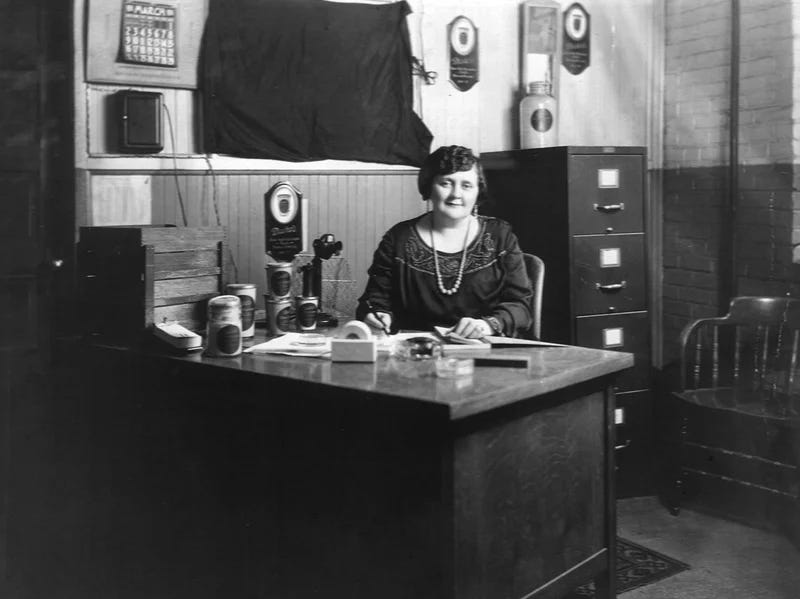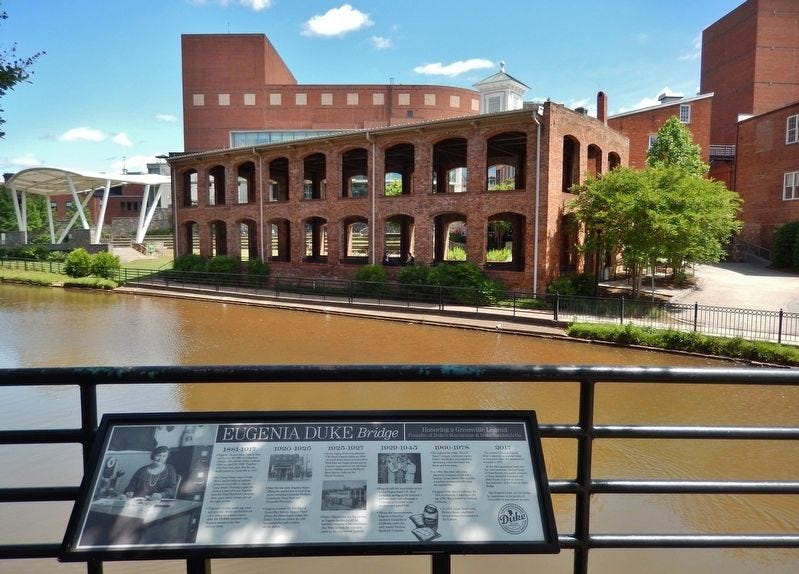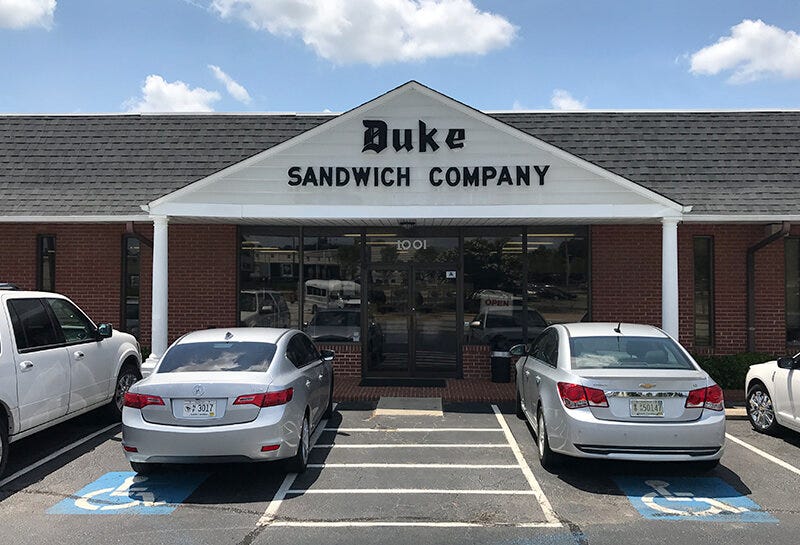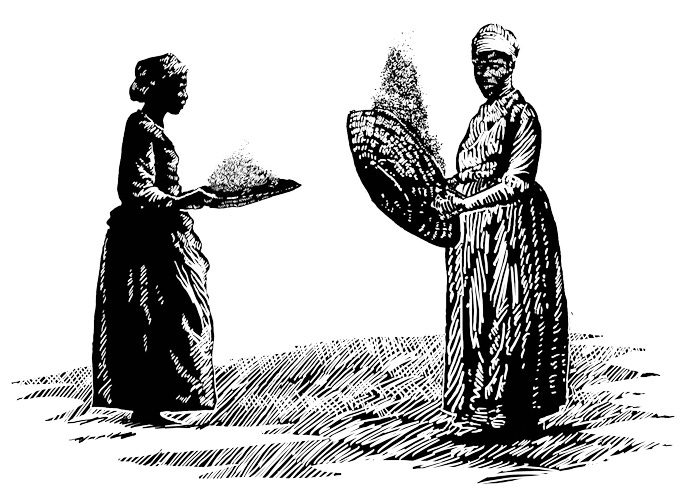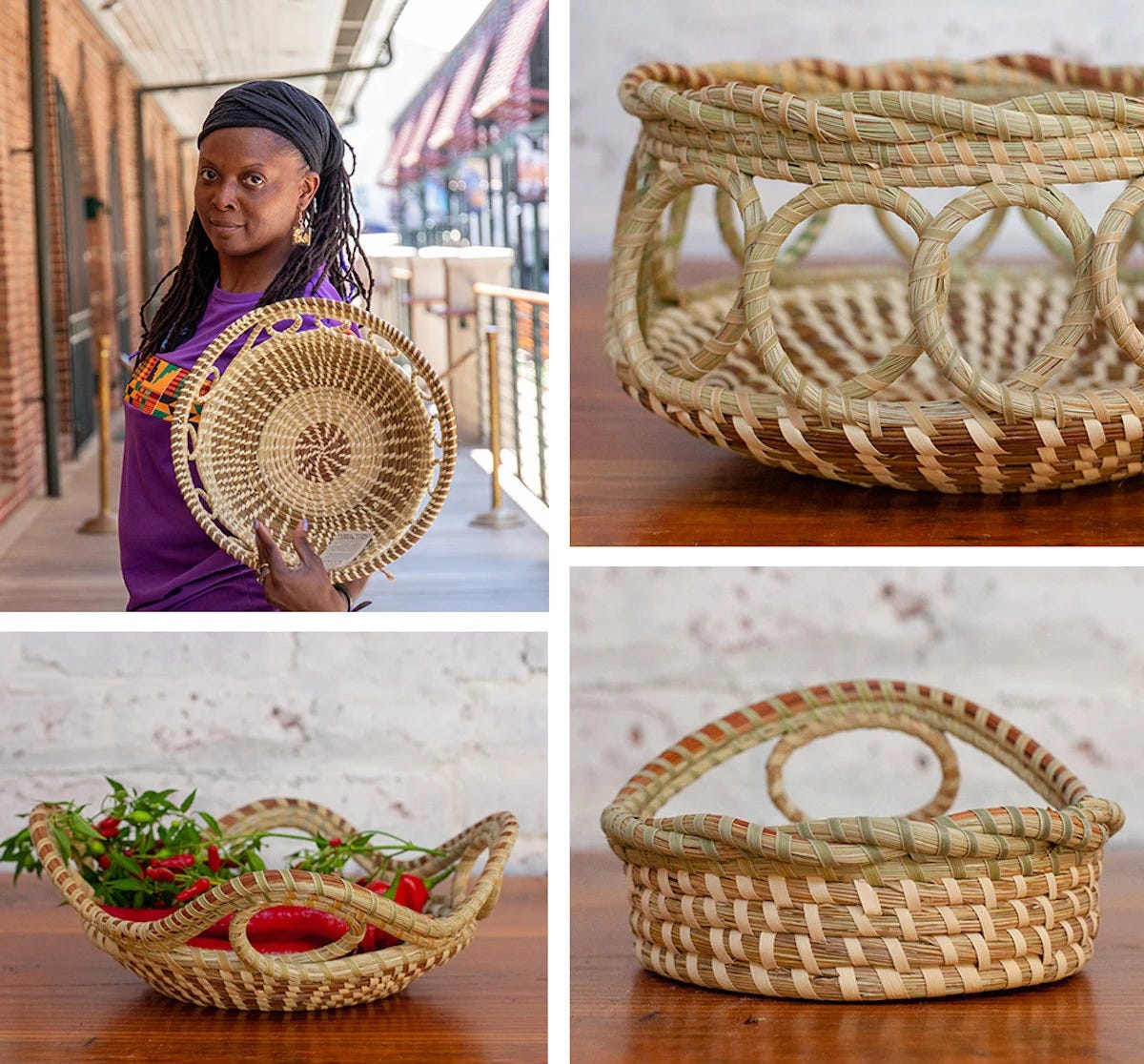#38: Delicious Duke's mayonnaise, Gullah sweetgrass baskets, and a workshop on quilting history
For South Carolina history lovers far and wide! Enjoy weekly SC history and upcoming SC historical events
Dear reader,
Welcome to Newsletter #38 of The South Carolina History Newsletter! I’m so happy you’re here.
Welcome “larry.christopher2” “MRSPLANO” “tlbennani” and “brendaleebradley” to our SC History Newsletter community! Woohoo!
I hope you enjoy today’s newsletter, and as always, please feel free to reply to this email with your ideas and suggestions on South Carolina history you’d like to learn more about. I’m only a click away.
Additionally, please join us & keep the conversation going by becoming a member of our SC History Newsletter Facebook Community here! I can’t wait to meet you.
And now, let’s learn some South Carolina history!
Yours truly,
Kate
(Writing from Greenville, SC)
➳ Featured SC History Event
Please enjoy our featured SC History Event below, and click here to visit my SC History Events Calendar that organizes all the upcoming SC history events I have discovered. Please let me know if you’d like to add an event to the calendar! Reply to this email or send me a note at schistorynewsletter@gmail.com.
Tomorrow, Wednesday March 20th at 11:00 am | “Kathleen Armel: The Five Oldest Quilt Blocks” | Horry County Museum | Conway, SC | FREE & Open to the public
“We’re celebrating textiles throughout March at the Horry County Museum! Stop by to hear from local quilters on a range of topics. In addition to the free programming, you’ll have a chance to win a door prize at every event! Join us Wednesday, March 20th at 11 AM as local quilter Kathleen Armel presents the history behind some of the oldest known quilt blocks. Many of these blocks have been used in quilts over the years and are still found in modern sampler quilts today. The program will be held at the Horry County Museum, located at 805 Main Street, Conway SC. This event is free and open to the public. For more information, call 843-915-5320 or email hcg.museum@horrycountysc.gov. To view a full list of programs, visit our website at www.horrycountymuseum.org.”
➳ SC History Fun Facts
I.
Did you know that the beloved Duke’s Mayonnaise brand started with a mother and daughter selling sandwiches to soldiers in Greenville?
Duke’s Mayonnaise is a beloved staple of South Carolina, and southern kitchens in general, and was created by Eugenia Duke (1881-1968) of Greenville in 1917. That year, United States entered World War I. Eugenia and her daughter started their business by selling sandwiches at YMCA-run Army canteens to help make money for their family. The soldiers at nearby Camp Sevier, which was a National Guard training camp, and other customers at additional camps raved about the sandwiches and their flavor, which came from the family’s signature mayo. Solders were “begging” for Eugenia’s recipes and jars of her “delectable spread.”
Duke's recipe is unique from other mayonnaise because it has always been sugar-free, and features “paprika, a dash of sharp vinegar, and extra egg yolks to make it creamy.”
By 1919, Eugenia was selling more than “10,000 sandwiches a day for around 10 cents each.” In 1920, Eugenia negotiated with the The Ottaray Hotel in Greenville to convert the hotel’s first floor into Duke's Tea Room, where Eugenia and her team sold petite versions of their sandwiches, as well as sides made with Eugenia's “special sauce.” In 1923, Eugenia started bottling her mayonnaise, and soon opened an office on South Main Street in Greenville's West End. The company also began producing the original mayonnaise in an old coach factory building next to the Reedy River (known today as the Wyche Pavilion).
Eugenia was also active in public life. She was involved in the push to pass the 19th amendment, granting women the right to vote in 1920. In November 1928, she was a speaker in Boston at the Mayonnaise Manufacturer's Convention.
Unable to keep up with demand, in 1929, Eugenia sold her business to the C. F. Sauer Company in 1929. Sauer then set up a factory, ensuring the condiment made its way into kitchens across the South. The company continues to make Duke's Real Mayonnaise in Mauldin, South Carolina, and it has been enjoyed nationally and internationally. In addition to the flagship mayonnaise, which is still made according to Eugenia’s original recipe in Greenville, SC, “Duke’s offers light, olive oil, and flavored mayonnaise, tartar sauce, sandwich relish and regionally-inspired Duke’s Southern Sauces, mustards, and dressings.”
There is also a historic flagship Duke Sandwich shop located on Greenville’s Poinsett Highway “where all the classics you have come to love and count on are still served with care daily.” If you haven’t been, you must go on your next trip to Greenville!
In 1950, Eugenia moved to California to be closer to their daughter Martha, but ever the entrepreneur, Eugenia began a new business out west selling sandwiches to cafes and drugstores, operating as “The Duchess Sandwich Company.”
Eugenia Duke passed away at age 90 and was laid to rest in Oakland, California.
To round off this section, I thought I would include this simple recipe for a classic Duke’s mayo and tomato sandwich.
Ingredients
2 slices bread
2 Tbsp. Duke's Mayonnaise
4 slices tomato, 1/4 inch thick
Salt and pepper
Directions
Spread 1 tablespoon of Duke’s Mayonnaise on each slice of bread. Add tomatoes. Salt and pepper to taste.
Cut into fourths or sixths depending on the size of the bread.
II.
Did you know that Gullah sweetgrass baskets were once used as tools to harvest rice? Now, the baskets are works of art that can sell for thousands of dollars.
A cultural and artistic staple of Charleston’s City Market and the surrounding areas of the city, Gullah "sweetgrass baskets" are coil straw baskets made by Gullah artisans, who are descendants of enslaved African workers in the South Carolina Lowcountry.
The basket technique was brought over from Africa in the colonial era. Before the baskets were art, they were tools. Baskets were used in particular for the gathering of rice, which was a core cash crop of South Carolina in the pre-Civil War era. The baskets were “winnowing fans to separate the rice seed from its chaff.” Today, the sweetgrass baskets are regarded among the “nation’s most prized cultural souvenirs.”
With more than 50 resident Gullah artisans, the Charleston City Market is the “epicenter of sweetgrass basketry.” Each basket can take upwards of 10 hours to craft. For more than 300 years, Gullah artisans in Charleston have been weaving baskets using “locally-harvested sweetgrass and bulrush, a strong yet supple marshgrass that thrives in the sandy soil of Lowcountry.” Simple baskets can sell for $40, more elaborate pieces prized by collectors can sell upward of $8,000.
Gullah weavers have also embraced technology and it is easier than ever to purchase baskets online, even on Etsy! Here are some wonderful quotes on the Etsy website from sweetgrass artisans selling on the platform:
“I weave to show the next generation something different and beautiful.” - Ruth Johnson
“My ancestors inspire me to weave...I sew to continue my heritage.” - Andrea Cayetano-Jefferson
“I am proud to continue the legacy, and I love that it lets me be creative.” - Gillettie Bennett
“Every basket I make is a labor of love, and there is so much history that comes with each one.” - Vera Mae Manigault
“I sew to honor my family and my culture.” -Vanessa Robinson
Gullah sweetgrass baskets are now a part of major museum art collections, including The Smithsonian American Art Museum’s permanent collection — which includes a sweetgrass basket made by Mary Jackson, whose finely detailed, sculptural baskets first appeared at the Charleston City Market in 1980. Mary’s devotion to the centuries-old craft was “recognized on the world stage” in 2008 when the MacArthur Foundation named Mary a MacArthur Fellow, an unsolicited global recognition of greatness that is accompanied by a $500,000 fellowship, often referred to as the “genius grant.”
I am also sharing this video about the Gullah sweetgrass basket tradition from CBS Sunday Morning:
➳ Quote from an SC historical figure
I.
“I weave with pride and dignity, working hard to continue the tradition.”
— Lillie Mae Jefferson, Gullah sweetgrass basket weaver
Sources used in today’s newsletter:
Worth The Whisk: How The Woman Behind Duke's Mayo Became A Tycoon
Charleston's Famous Gullah Basket Weavers Selling Online for the First Time Ever Thanks to Etsy
I always want to improve my work. Answer the poll below to give me your review of today’s newsletter. I also welcome your suggestions for new content! Simply reply to this email with your ideas. Thank you!








